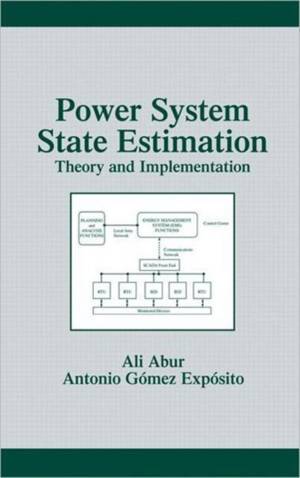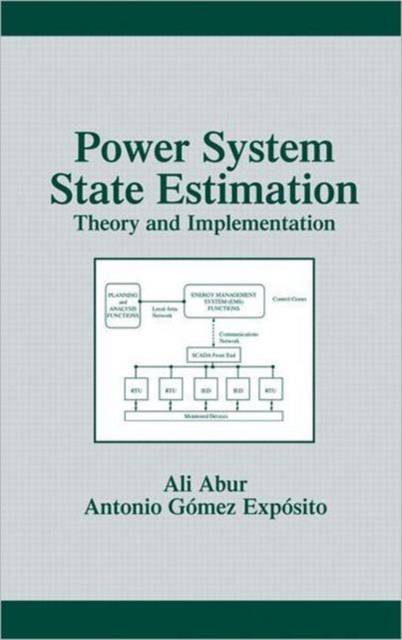
- Retrait gratuit dans votre magasin Club
- 7.000.000 titres dans notre catalogue
- Payer en toute sécurité
- Toujours un magasin près de chez vous
- Retrait gratuit dans votre magasin Club
- 7.000.000 titres dans notre catalogue
- Payer en toute sécurité
- Toujours un magasin près de chez vous
155,45 €
+ 310 points
Description
Offering an up-to-date account of the strategies utilized in state estimation of electric power systems, this text provides a broad overview of power system operation and the role of state estimation in overall energy management. It uses an abundance of examples, models, tables, and guidelines to clearly examine new aspects of state estimation, the testing of network observability, and methods to assure computational efficiency.
Includes numerous tutorial examples that fully analyze problems posed by the inclusion of current measurements in existing state estimators and illustrate practical solutions to these challenges. Written by two expert researchers in the field, Power System State Estimation extensively details topics never before covered in depth in any other text, including novel robust state estimation methods, estimation of parameter and topology errors, and the use of ampere measurements for state estimation. It introduces various methods and computational issues involved in the formulation and implementation of the weighted least squares (WLS) approach, presents statistical tests for the detection and identification of bad data in system measurements, and reveals alternative topological and numerical formulations for the network observability problem.Spécifications
Parties prenantes
- Auteur(s) :
- Editeur:
Contenu
- Nombre de pages :
- 346
- Langue:
- Anglais
- Collection :
Caractéristiques
- EAN:
- 9780824755706
- Date de parution :
- 24-03-04
- Format:
- Livre relié
- Format numérique:
- Genaaid
- Dimensions :
- 158 mm x 235 mm
- Poids :
- 535 g







